Your cart is currently empty!
Nutritional Benefits Of Blueberries
James Joseph, Ph.D., a nutrition researcher at the Human Nutrition Research Center on Aging at Tufts University, begins his days by drinking a glass of pomegranate juice and eating a cup of wild blueberries. According to a 2008 article in Psychology Today, after studying the nutritional benefits of blueberries for years, Dr. Joseph is sure that they help the brain and the body. They support the fight they have with a seemingly endless number of problems associated with aging. Blueberries contain traditional nutrients, such as carbohydrates, fiber, vitamins C and E, and manganese. They also have anthocyanidins (dark flavonoid phytochemicals), which fight oxidative stress and inflammation. “Cumulatively, the berries produce antioxidant effects, neutralizing cellular damage created by free oxygen radicals and blocking pathways by which oxidative stress damages cells. Perhaps more important, they function as anti-inflammatory agents to preserve cardiovascular and brain function.
Walnuts And Blueberries Support Brain Neurons

In a 2004 interview with the Seattle Post-Intelligencer, Dr. Joseph said that the old neurons in the brain are like couples who have been married a long time-they no longer communicate. Blueberries change that dynamic. They enable neurons to converse once again. “Blueberries have compounds that boost neuron signals and help tum back on systems in the brain. That can lead to using other proteins to help with memory or other cognitive skills.”
In his research on rats and mice, Dr. Joseph has found that rats that eat blueberries have fewer cases of Alzheimer’s disease and lower instances of arthritis-related inflammation. He and his colleagues have also determined that blueberries may be helpful for those undergoing radiation therapy. They reduce the effects on cognitive and motor skills and may “even eliminate radiation-induced nausea.” Three rats were fed on a diet containing two percent blueberry extracts before undergoing radiation. These rats did far better than those who received no blueberries before radiation treatments. “Irradiation causes deficits in behavior and signaling in rats. They were ameliorated by an antioxidant diet. The polyphenols in these fruits might be acting in different brain regions.”
Dr. Joseph has observed that the nutritional benefits of blueberries work best when eaten with high-fat foods such as walnuts. Walnuts contain polyphenols and omega-3 fatty acids. Working together, the blueberries and walnuts make nerve cell membranes more responsive. (Nutritional Benefits of Walnuts can be found here.) As a result, “the efficacy of all transactions” shows improvement. In addition, the combination of blueberries and walnuts “may help block inflammation at the cellular level”. Furthermore, The research points to a process now implicated in cardiovascular disease, Alzheimer’s disease, and other degenerative aging processes.
Cardiovascular Health

A Canadian study led by Wilhelmina Kalt, Ph.D., a researcher with Agriculture and Agri-Food Canada, published in 2008 in the British Journal of Nutrition, reported that pigs fed a 2-percent blueberry diet experienced reductions of the total, LDL, and HDL cholesterol. The two-percent blueberry diet is equivalent to two cups of blueberries in the human diet. Why is this significant? Pigs and humans have similar levels of LDL. They are also prone to diet-related vascular disease and atherosclerotic plaques in the carotid artery and aorta. Furthermore, their heart rate and blood pressure resemble human heart rate and blood pressure6. A 2008 article in Grocer states that Dr. Kalt advises people to eat four ounces of blueberries daily.
Cancer Treatment

In a 2006 study published in the Journal Of Agricultural And Food Chemistry, Navindra Seeram, Ph.D., Assistant Director of the UCLA Center for Human Nutrition and Assistant Professor at the David Geffen School of Medicine at UCLA, reported that the extracts of common berries, such as blueberries, which are filled with antioxidants, inhibit the growth of invitro mouth, prostate, breast, and colon cancer cells. Dr. Seeram and his colleagues also determined that higher amounts of berries inhibit more significant numbers of cancer cells. “With increasing concentration of berry extract, increasing inhibition of cell proliferation in all cell lines were observed, with different degrees of potency between cell lines.”
Another study, published in 2007 in Clinical Cancer Research, describes research conducted by scientists at Rutgers University and the U.S. Department of Agriculture (USDA) on the relationship between pterostilbene, a naturally occurring antioxidant in blueberries, and colon cancer. During the study, rats receive a compound to induce colon cancer. Half of the rats were then on a balanced diet. The other half would receive the same diet and supplements with pterostilbene. The rats had a comparison to the control group at the end of eight weeks. The rats that had consumed supplemental pterostilbene had 57 percent fewer pre-cancerous colonic lesions. Researchers concluded that the “study suggests that pterostilbene, a compound present in blueberries, is of great interest for the prevention of colon cancer.”
Agnes Rimando, Ph.D., a researcher with Natural Products Utilization Research in Mississippi, a division of the USDA Agriculture Research Service, has found similar results. In her studies, Dr. Rimando has noted that pterostilbene may well impair the ability of enzymes to activate chemical carcinogens. So cells that might be otherwise tum cancerous do not.
Anti-Aging And General Well-Being

It has been well established that there is a strong relationship between oxidative stress and chronic illness and aging. Moreover, the antioxidants in blueberries will fight that oxidative stress. A research study published in 2007 in the Journal of the American College of Nutrition found that it is not only crucial for people to eat blueberries and other antioxidant foods. It is also significant when they eat them. To reduce oxidative stress throughout the day, the researchers recommend eating blueberries or other antioxidant foods with each meal.
A 2006 study published in Neurobiology of Aging addressed that as people age, the heat shock proteins in the brain, which, like antioxidants, support healthy brain functions, decline. Could eating blueberries reverse this decline? Researchers fed a blueberry-enhanced diet for ten weeks to young and old rats. There was a comparison to a control group of aged rats fed a diet without blueberries.
The expectation was that the brains of the young rats would be found to contain large amounts of heat shock proteins after ten weeks. The brains of the old rats who did not eat blueberries had low amounts of heat shock proteins. However, the heat shock proteins of the aged rats who ate blueberries lowered all their levels. Researchers concluded that blueberries play a severe role in protecting against the neurodegenerative processes associated with aging.
Nutritional Benefits Of Blueberries
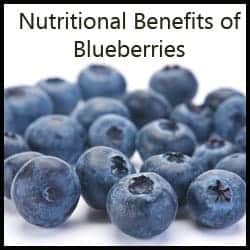
A 2005 article in Nutrition Today summarizes the many reasons for including blueberries in the diet. “The blueberry is becoming more widely recognized for its flavor, nutrition, and health benefits. Both production and consumption in the United States have more than doubled in the last 20 years. The nutritional benefits of blueberries rank among the highest in antioxidant activity compared to other fruits and vegetables, and they are also one of the richest sources of anthocyanins.” There is solid evidence that consuming anthocyanins reduces the risk of heart disease, cancer, and other aging-related problems.

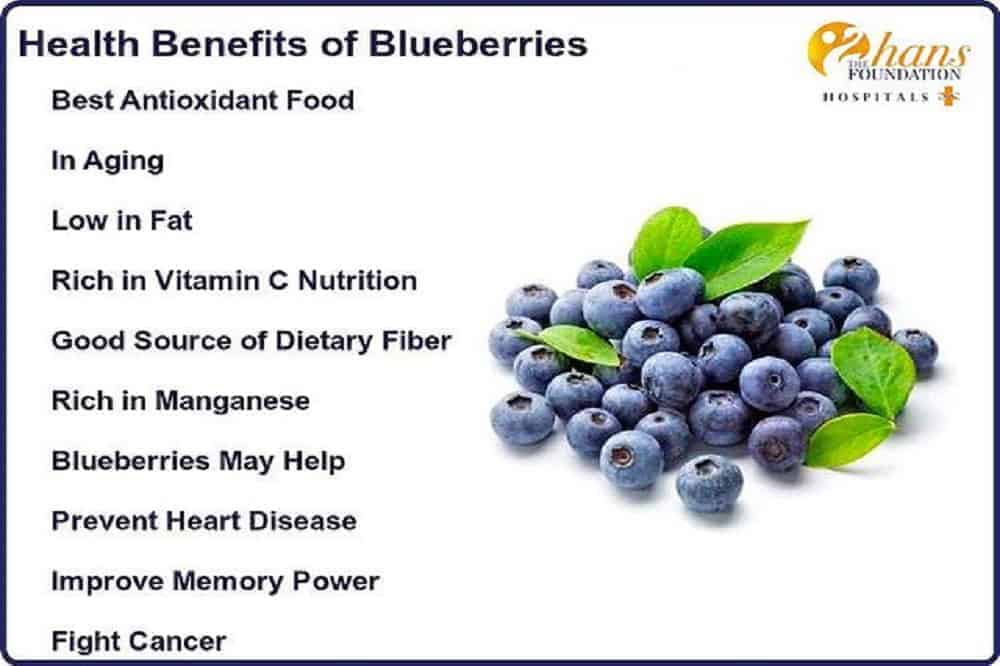
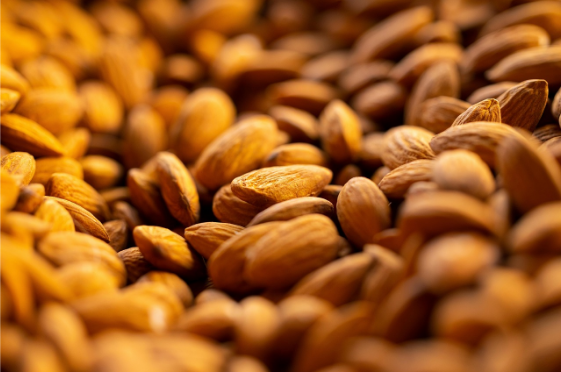
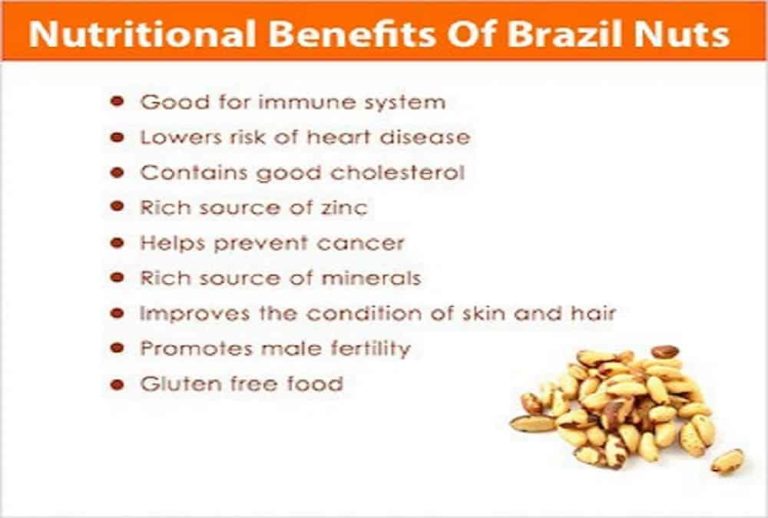


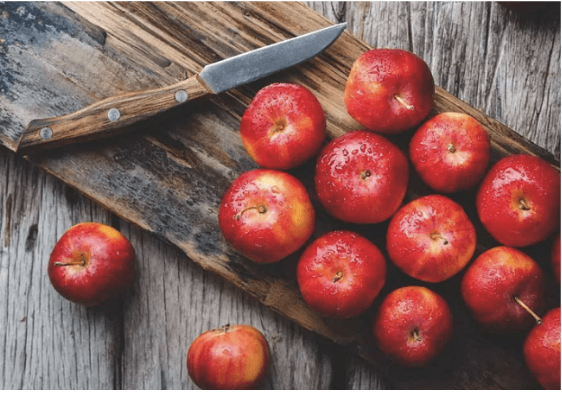

Nice, thanks!